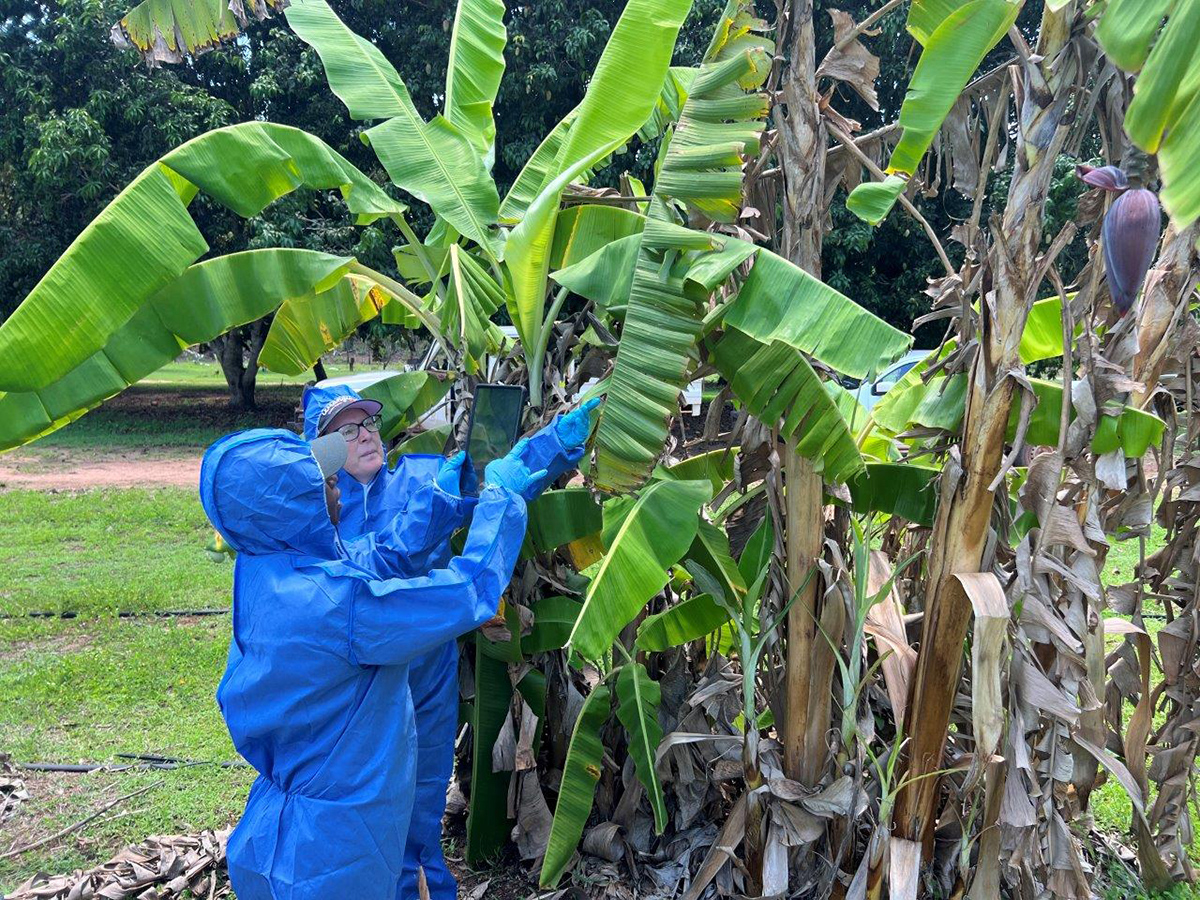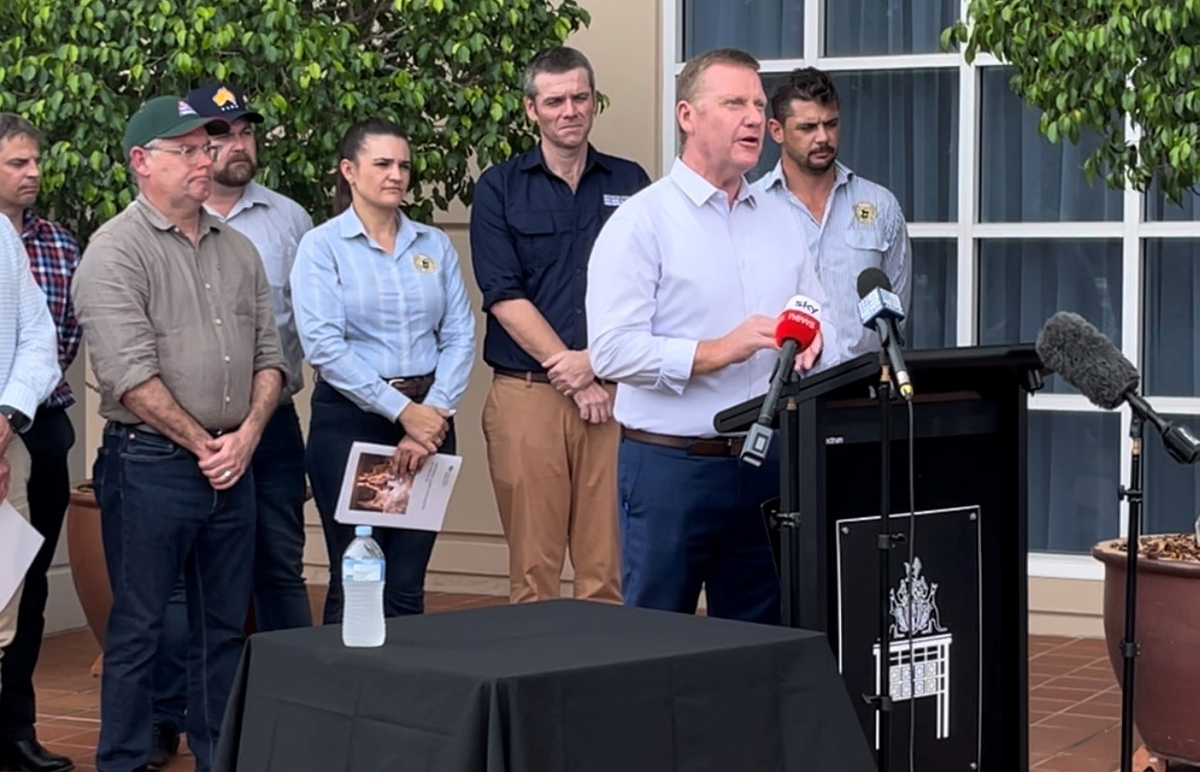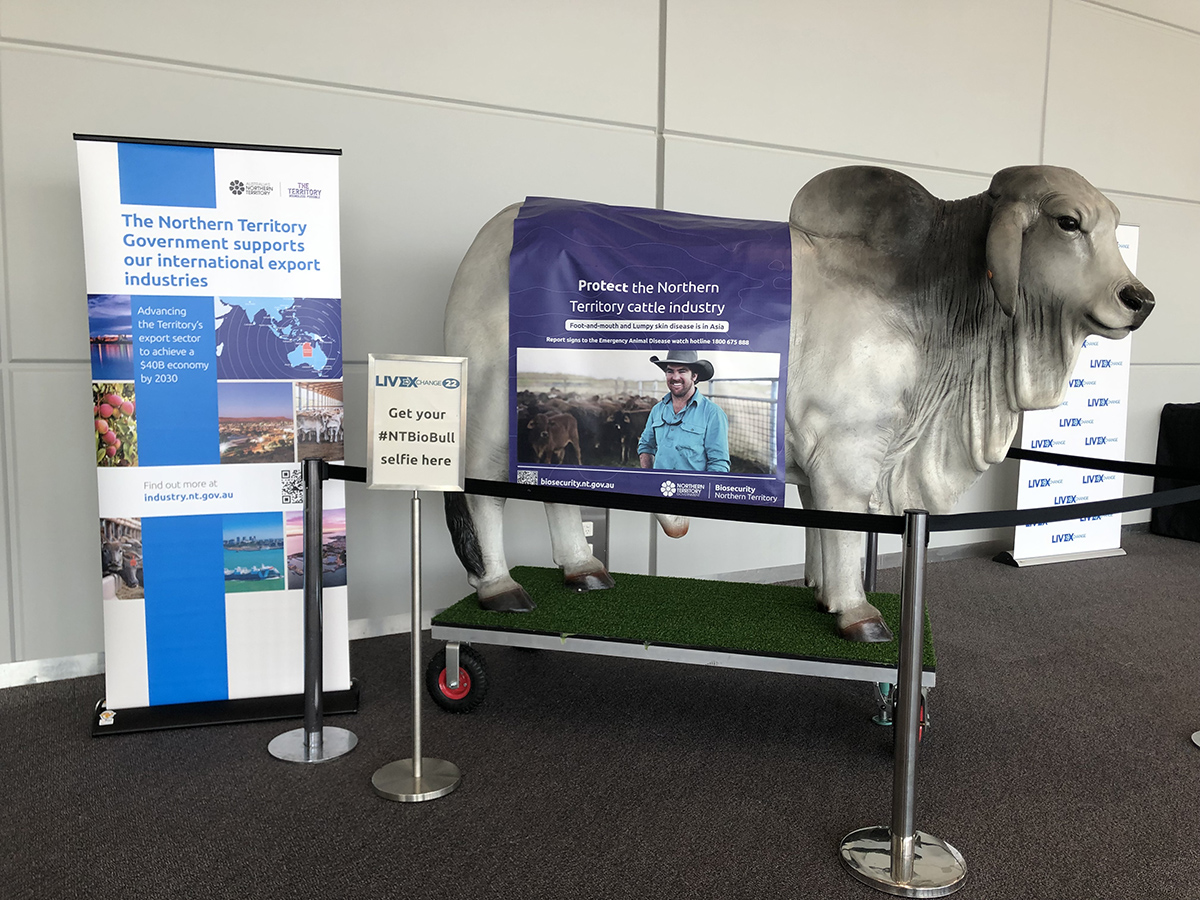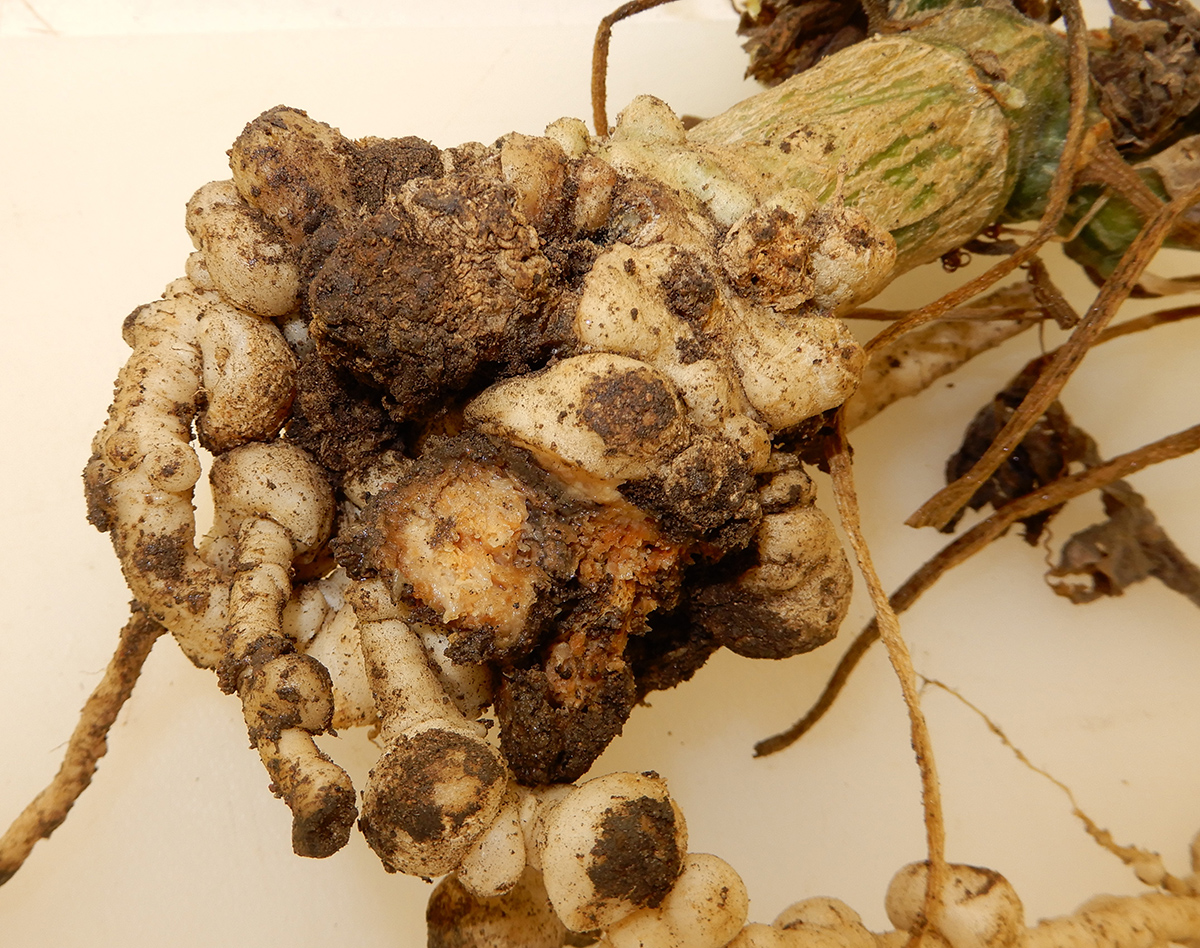Agriculture and Biosecurity newsletter: December 2022
Banana Freckle eradication plan underway

Efforts to eradicate banana freckle and minimise the spread of the fungal disease in the Top End are well underway with staff from the Banana Freckle Response team continuing to check plants for symptoms and remove plants from infected properties.
So far almost 1700 properties have been inspected with the response team checking banana plants in various locations across the Top End from the Darwin rural area to the Tiwi Islands and as far south as Katherine.
These surveillance efforts are vital to understanding and tracking where the disease is and how far it has spread. There are currently 49 infected properties and to date plants have been removed from over 50% of those properties.
The Banana Freckle Response team are asking anyone with a banana plant on their property to check it for signs of the disease and to report it even if it is healthy.
Banana Freckle Response team Program Manager, Belinda Townend, said all data collected on banana plants, either infected or healthy, helps to paint a picture of how the disease has spread but also, healthy or disease free plant data helps the NT to claim freedom from the disease further down the track when the response is coming to an end.
“The team has been working hard to identify cases of banana freckle. Thanks to all the property owners who have let us inspect their banana plants, it all helps to protect our local growers and the broader Australian banana industry from this disease.”
Banana freckle makes leaves and fruit spotty and has a sandpaper feel due to the fungal spore vessels sticking up through the surface of the leaf or skin.
If you have a banana plant, call the Banana Freckle Response team on 8999 2136 or email bananafreckle.nt@nt.gov.au to book a free plant health check or get more information.
Biosecurity Funding Boost

The Department of Industry Tourism and Trade received a $2.9 million funding boost to prepare industry to respond to biosecurity threats.
The funding was announced in October with the Territory facing a number of biosecurity threats including Lumpy Skin Disease, Foot and Mouth Disease and the detection of Japanese Encephalitis, Banana Freckle, American Serpentine Leafminer and Mango Shoot Looper in the past year.
The funding will deliver industry training and preparedness programs, new biosecurity systems to link with national reporting systems, building plant biosecurity capacity to prepare for and manage incursions and emergency response planning and exercising.
The funding will support pastoralists and supply chain operators to put in place biosecurity and business continuity plans to underpin their emergency animal disease preparedness.
The Territory’s beef industry is currently worth $1.2 billion and the impacts of Foot and Mouth Disease or Lumpy Skin Disease, were it to be detected in the NT would be significant.
New Deputy Chief Veterinary Officer and Deputy Chief Plant Health Officer Appointed

The Department of Industry Tourism and Trade has welcomed Deputy Chief Veterinary Officer, Rob Williams and Deputy Chief Plant Health Officer, Sally Heaton to the newly created positions.
The positions were created as part of the NT Government’s $1.9 million funding boost in the March 2022 budget for biosecurity preparedness.
Dr Williams started in the role in September after working in various positions in the USA and China and has extensive experience in the red meat industry, including animal health and welfare, nutrition, veterinary medicine, processing and distribution of red meat products.
He has degrees in science and veterinary science and a masters in veterinary public health management. He has worked across the Federal Department of Agriculture in various roles, including in biosecurity.
Before commencing his role in the Northern Territory, Dr Williams was the Regional Manager for Meat & Livestock Australia in Washington DC for five years.
He previously worked for the Australian Meat Industry Council as the Technical Advisor. His focus was on non-tariff barriers to trade into all countries, especially priority markets including China, the Middle East and Indonesia.
Dr Williams’ current priorities as Deputy Chief Vet are to understand how to better integrate our business systems, ensure staffing capacity is optimal, especially during a heightened period of awareness for emergency animal diseases, and reviewing the tick regulatory program.
Ms Heaton has vast experience leading a multi-disciplinary team and since 2019 was the Plant Biosecurity operations Manager and Chemicals Coordinator.
Prior to taking that role she was the Chief Wildlife Ranger and Acting Director of Wildlife Operations with the Parks and Wildlife Commission.
Ms Heaton’s current priorities are to build a good team and ensure staff are well supported especially with ongoing emergency response activities and plan and Implement the next phases of current Emergency Response and Eradication programs for Banana Freckle, Browsing Ant and Guava Root Knot Nematode.
Ms Heaton has also been nominated as the NT representative on the Plant Health Committee and she is looking forward to working closer with national peers to identify areas where we can collaborate together in order to get better outcomes for the NT.
Meet BOS the biosecurity bull

A replica Brahman bull will feature at industry events in the coming months to promote biosecurity preparedness and highlight the importance of the cattle industry to the Territory.
Earlier in the year, a life size bull was placed at Alice Springs Airport with a cover containing messages informing travellers heading to Bali of the dangers Foot and Mouth disease poses to the NT cattle industry.
It proved to be a success, with the eye-catching display attracting the attention of tourists.
So far the Top End’s version of the bull has attended LIVEX and the Indonesia Australia Business Council Conference.
The bull has been named BOS by staff at the Department of Industry, Tourism and Trade. The name is an acronym for Biosecurity Operations and Surveillance and is also a nod to his breed, being a Bos Indicus bull.
The department’s Agribusiness team are credited with coming up with the name.
Guava Root-Knot Nematode Surveillance Increased

The NT Government has increased surveillance and assigned a full-time project manager to gain better intelligence on the Guava Root-Knot Nematode, detected in Darwin last month.
Plant biosecurity staff has ramped up community engagement as efforts to detect Guava Root-Knot Nematode in the Northern Territory step up.
Guava Root-Knot Nematode is pest which affects the crop yield of vegetables and causes severe knotting of a plant’s root system.
Guava Root-Knot Nematode, also known by its scientific name Meloidogyne enterolobii, was detected in the Darwin area last month, and has now been found on seven properties.
The pest has been detected in Malak, Rapid Creek, Anula and Leanyer in Darwin, Palmerston, Middle Point and on Croker Island.
DNA samples have been provided to the Queensland and Western Australian Governments to check historical samples to confirm this nematode is not present in other jurisdictions.
Formal engagement with growers will include visiting growers, undertaking tracing, collecting samples, providing advice for management and developing protocols for pest free place of production.
Guava Root-Knot Nematode spreads through the soil attached to machinery, tools, footwear, and plant products.
It causes severe knotting of a plant’s root system and can cause stunted growth, wilting and the yellowing of leaves.
To report a suspected case of Guava Root-Knot Nematode, call the exotic plant hotline on 1800 084 881 or email images to the Plant Biosecurity team at plantbiosecurity@nt.gov.au.
Give feedback about this page.
Share this page:
URL copied!